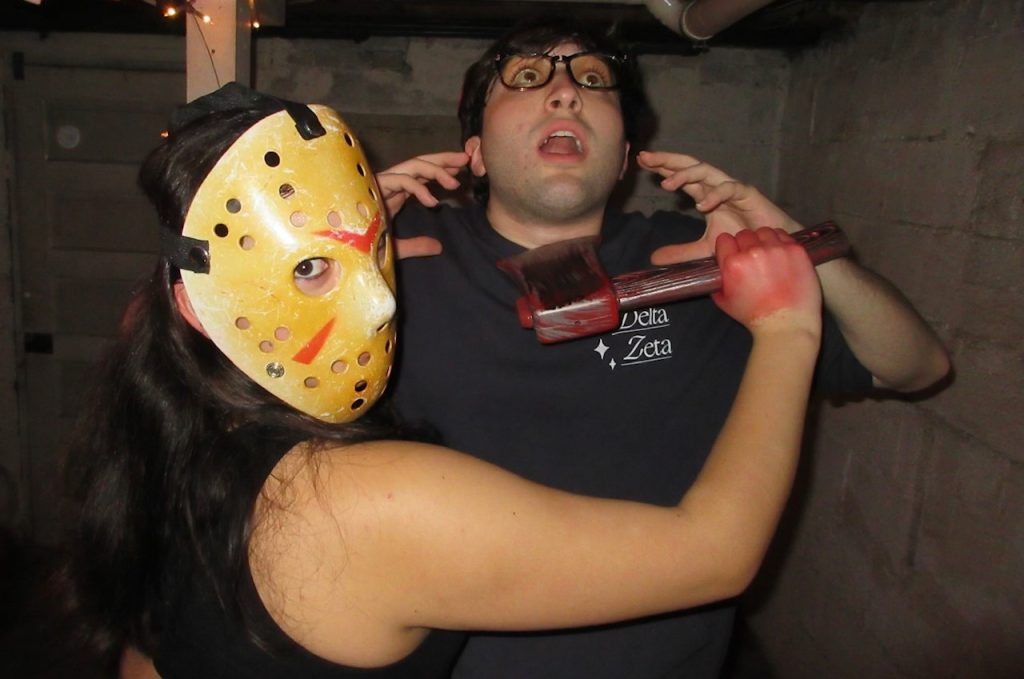
“I became insane, with long intervals of horrible sanity.”
Mental Health is defined as a state of mind characterized by emotional well-being, good behavioral adjustment, relative freedom from anxiety and disabling symptoms, and a capacity to establish constructive relationships and cope with the ordinary demands and stressors of life.
HAHAHAHAHAHAHAHAHAHAHAHAHAHAHAHAHAHAHAHAHA!!!!
I believe it is accurate, (and safe), to assume, (and also declare), the above definition of cerebral/psychological wellness – as an impractical, (and utterly absurd), notion. Ergo the deranged laughter that ensued.
Is it the times we inhabit which promote my hopelessness, (or is it merely cynicism)?
“And have I not told you that what you mistake for madness is but over-acuteness of the senses?”
The italicized quotes above are from the master of macabre, Mr. E.A. Poe. He thoroughly comprehended, (or perhaps dutifully deciphered), the paralyzing horror of detaching oneself from empathy.
Insight into, (or certainly responsiveness to), the human condition has been placed on hold! Maintaining immunity to misery, (ok a bit melodramatic – angst), seems beyond arduous in a world where you’re told to “live your best life,” – (is there a more irritating cliche) – in the midst of all this mania.
As society becomes less concerned with balance, it becomes more consumed with distortion.
Why are serial killer biopics all the rage lately? Is it technological access or innate cognitive curiosity? Social media platforms allow for broad public discussion and debate around these cases. This creates a continuous cycle of engagement as users analyze, speculate, and share details. While this can fuel interest, some online communities have also started self-regulating to prevent the glorification of killers. Often grounded in the reality of actual crimes, the ethical implications can lead to a more unsettling viewing experience.
Conversely, since they are almost always fictional, allowing for a safer, more detached form of entertainment – horror movies contain psychological tricks that create illusions of suspense and danger through the manipulation of images, sound, and story.
Although your brain is aware that the threats are not real, your body simultaneously registers them as if they are.
Psychologists whose concentration is anxiety and stress disorders explain, when watching horror films, your heart pumps and adrenaline flows, and your attention narrows in, even as you know you are at home or in the theatre and there is no real danger.
Generally speaking, there is no harm in watching for those who can process the illusion for what it is. In other words, the ability to have an experience and simultaneously observe it as defusion or disentanglement.
There are some things to be mindful of.
Horror films are designed to elicit certain emotions such as tension, fear, stress, and shock. These can cause the release of the hormones in the body such as norepinephrine, cortisol, and adrenaline from the autonomic nervous system.
You may notice a physiological response from these hormones by way of pupil dilation, increased heart rate, and muscle tension.
Although adrenaline contributes to the overall experience of the movie, the elevated states can make it harder to sleep.
Getting a good night’s sleep is incredibly important for physical and mental health.
Those that suffer from anxiety sensitivity are more likely to experience a negative impact from watching horror films. The tendency to fear intrusive thoughts and images may be triggered and increase levels of panic.
Despite being full of guts and gore, horror films can have positive effects on viewers too, as these films can be an opportunity to confront one’s fears and withstand the horror, before enjoying the payoff of resolution.
Poe tried to understand the human mind in health or disease. By observing and analyzing his own mental activities, by objective scrutiny, and by reading some of the authorities of his time. He also had more than average understanding of those pseudoscientific offshoots of psychology.
His writings show interest in the human character, as well as in the insanity and disintegration of the mind. Although in a broader sense every story, poem, and review is a study in psychology, in the narrower sense more than a score of his tales, a few poems, and several essays demonstrate his use of psychology and insanity. A student of contemporary trends in science, a sensitive individual of brilliant mind, Poe was well aware of the state of mental science during his era.
Just like the inhabitants of our modern-day society.
HAHAHAHAHAHAHAHAHAHAHAHAHAHAHAHAHAHAHAHA!!!!
Did You Know? Globally, more than one billion people live with a mental health disorder, representing a significant portion of the world’s population. The issue is widespread and affects every age group, including a large percentage of youth, but it remains largely underfunded and inadequately treated.
A very Deep Blog—again reread twice and as I always do will again —-The saddest think that was touched on was in the -DID YOU KNOW———————–as stated we as do NOT understand the NEED WE ALL have to receive care of our mental and emotional needs EQUALLY as we do our physically ones—WHY——–ENDLESS meeting with EVERY Type of Specialists face to face—-endless Tests ETC ETC ETC —–But Not Regular visits with a mentaL health specialist FACE TO FACE Regularly—–WHY ——-and without a Doubt in my mind——-which would lower the use of meds—Anxiety—-Depressions-Insomnia—-and yes suicides—-WHY—??????? ———–Shame on the Insurance companies BIT EQUALLY the Medical profession {I was a nurse for 40 plus years}—The family doctor— cared for the WHOLE person—and understood you CANNOT care for the physically without the Mental ——great blog –Lis-